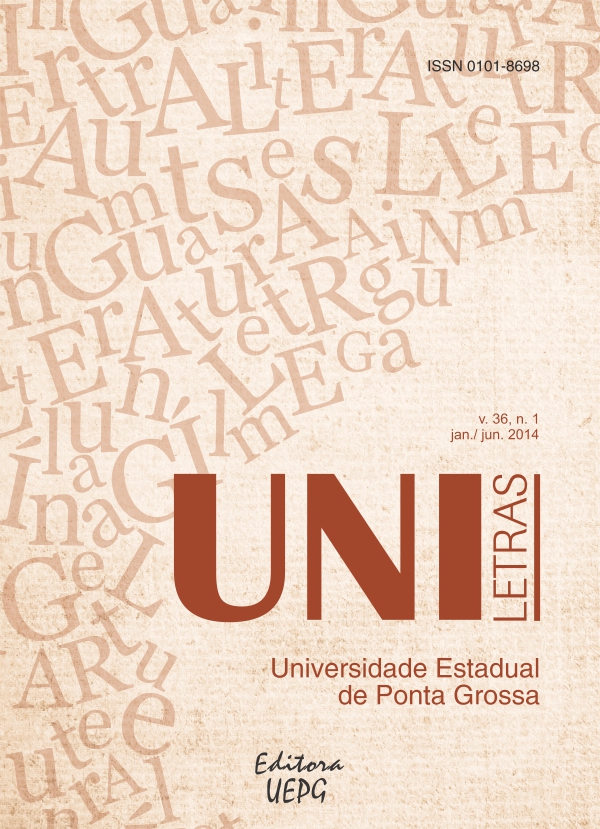A identidade e seus reflexos na prática de professores/as de línguas
DOI:
https://doi.org/10.5212/uniletras.v36i1.5499Palavras-chave:
identidade, formação de professores, aula de língua.Resumo
Atualmente tudo em nossa sociedade tem caráter efêmero. Estamos passando pelo período denominado por alguns estudiosos (HALL, 2002; BAUMAN, 2005) de “pós- modernidade” e uma de suas características é a descentralização do sujeito e o caráter líquido de sua identidade. Isso significa que não temos apenas uma identidade, mas sim várias, muitas vezes conflitantes entre si, (re) construídas através da interação e negociadas de acordo com as exigências dos diversos papéis sociais que assumimos em diferentes momentos. Como a escola é um espaço que possibilita interação constante, vemos que ela exerce papel importante na composição dessas identidades e que o professor é um dos principais agentes nesse processo. Este trabalho traz contribuições de diversas pesquisas sobre identidades de raça, etnia, gênero e sexualidade no contexto escolar a partir das quais pudemos perceber a importância de o professor refletir sobre si mesmo para poder contribuir positivamente na construção de identidades.
Downloads
Publicado
Edição
Seção
Licença
Autores que publicam nesta revista concordam com os seguintes termos:
a) Os autores mantém os direitos autorais e concedem à revista o direito de primeira publicação, com o trabalho simultaneamente licenciado sob a Creative Commons Attribution License que permite o compartilhamento do trabalho com reconhecimento da sua autoria e publicação inicial nesta revista.
b) Esta revista oferece acesso livre imediato ao seu conteúdo, seguindo o princípio de que disponibilizar gratuitamente o conhecimento científico ao público proporciona maior democratização mundial do conhecimento. Para maiores informações sobre esta abordagem, visite Public Knowledge Project, projeto que desenvolveu este sistema para melhorar a qualidade acadêmica e pública da pesquisa, distribuindo o OJS assim como outros softwares de apoio ao sistema de publicação de acesso público a fontes acadêmicas. Os nomes e endereços de e-mail neste site serão usados exclusivamente para os propósitos da revista, não estando disponíveis para outros fins.

This work is licensed under a Creative Commons Attribution 4.0 International License.





